Ever popped a pill thinking it’s just another step in your morning routine, only to find out it might not mix well with yesterday’s dinner or that new supplement you grabbed at the pharmacy? That’s the tricky side of medications like bisoprolol fumarate—a quiet game-changer for heart health that’s deceptively sensitive to what else you put in your body. From specific painkillers to something as innocent as a grapefruit, tiny choices can have massive ripple effects. Would you believe that nearly one in four hospitalizations for heart patients involve drug interactions, often right under our noses?
How Bisoprolol Fumarate Works and Why Interactions Matter
Let's strip this down: Bisoprolol fumarate belongs to beta-blockers—a class of meds that slow your heart rate, make it pump more effectively, and keep blood vessels relaxed. The reason it's so widely prescribed is pretty clear. If your heart’s pushing too hard or skipping a beat, bisoprolol steps in as the control tower, keeping the air traffic organized. It’s a superstar for treating high blood pressure, angina, and sometimes chronic heart failure.
But here's the kicker: beta-blockers like bisoprolol interact with a surprising range of meds and even some foods. They're metabolized mainly in your liver, using some of the same pathways as common drugs for pain, allergies, depression, and more. If the liver’s too busy breaking down something else, bisoprolol’s levels in your bloodstream can go haywire—either not doing enough or causing too much of an effect. Cue dizziness, slow pulse, or the opposite: uncontrolled blood pressure. And it's not rare. Around 30% of people taking heart meds end up with some kind of interaction over a year, according to a 2023 European Cardiology study.
Why such a high rate? Partly because rates of polypharmacy (fancy word for taking lots of meds together) have doubled in the last decade, especially in folks over 60. Add to that the number of herbal supplements flying off shelves, and you’ve got a real mixing bowl of possible interactions. And let’s not even start on how certain foods or alcohol shift things up a notch.
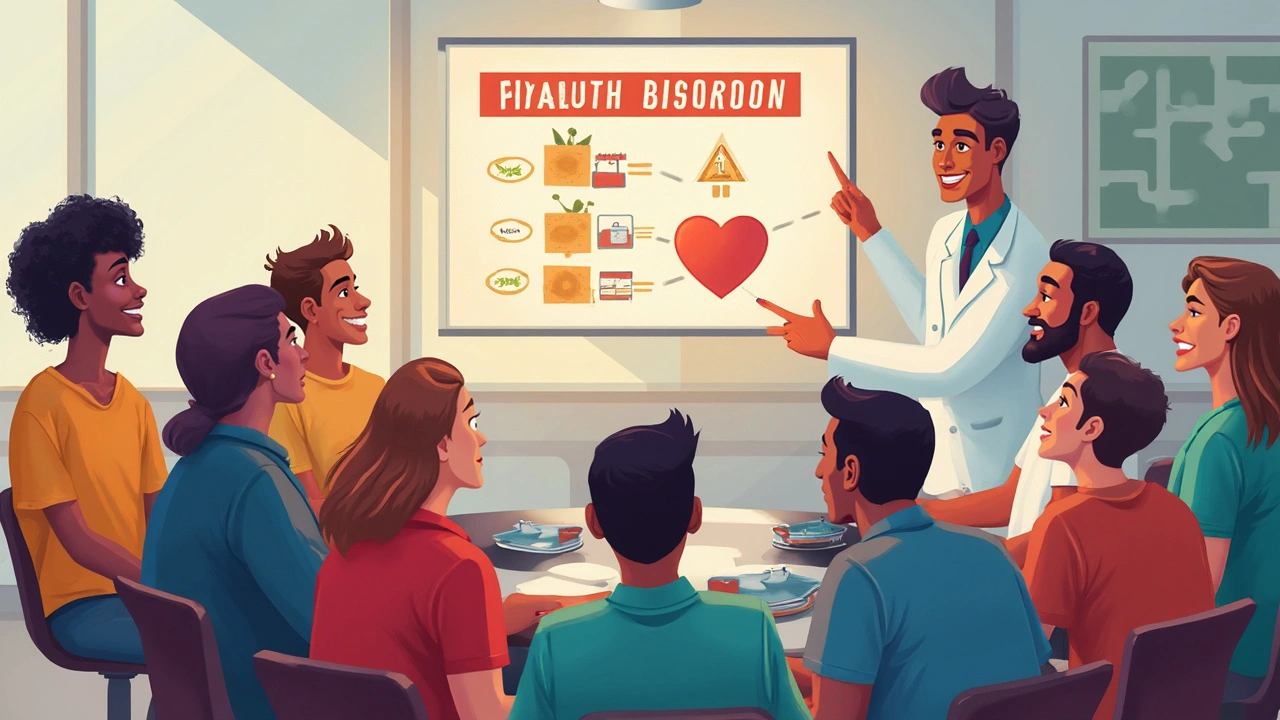
Medications, Foods, and Supplements That Clash with Bisoprolol
Okay, so what’s actually off-limits, and what’s safe for your daily cup of tea? Here's where things get specific. Some interactions are dangerous, while others are just inconvenient. Here’s a good chunk of research distilled into real-life advice:
- Clonidine, verapamil, diltiazem, and amiodarone: These heart meds seem harmless but actually stack up their effects with bisoprolol, risking a too-slow heart rate, or what docs call bradycardia. Double-check with your prescriber if you’re on any of these.
- Non-Steroidal Anti-Inflammatory Drugs (NSAIDs): Ibuprofen or naproxen—your regular painkillers—reduce bisoprolol’s effect on blood pressure. Taking them for more than a few days? You could see your numbers go up, which is the opposite of what you want for your heart.
- Antidepressants and antipsychotics: Drugs like fluoxetine, paroxetine, or chlorpromazine may slow the same enzymes that handle bisoprolol, ramping up its side effects (think fatigue, lightheadedness, or even fainting if blood pressure dips too low).
- Some diabetes medications: Insulin and sulfonylureas (like glyburide) hide the warning signs of low blood sugar—especially rapid heartbeat. That makes hypoglycemia sneakier and more dangerous if you’re on bisoprolol.
- Recreational substances: Alcohol doesn’t combine well, either. Its sedative effect can multiply with bisoprolol, making you extra groggy or dizzy. Cannabis and stimulants complicate things more, especially if you’ve got an existing heart rhythm issue.
What about food and drink? Most folks don’t realize that certain drinks can subtly put a wrench in the plan. Grapefruit juice, for example, messes with the CYP3A4 enzyme that helps clear bisoprolol, potentially raising its blood levels. The effect isn’t as strong as with other drugs, but why risk it when swapping in orange juice is simple?
Salt substitutes, often loaded with potassium, can also be a hidden risk if your kidneys aren’t working perfectly or if you’re also taking ACE inhibitors. High potassium can nudge your heartbeat off rhythm, especially combined with the effects of a beta-blocker.
Got a favorite herbal remedy? Supplements like St. John’s Wort speed up liver enzymes, breaking down bisoprolol so quickly that you might not get a full dose. On the opposite side, ginseng may increase blood pressure—a clear mismatch if you’re trying to keep it down.
Check this quick-reference table for a summary of common clashes:
| Item | Interaction | What Happens |
|---|---|---|
| Ibuprofen/NSAIDs | Reduced effect | Higher blood pressure |
| Verapamil/Diltiazem | Increased effect | Slow heart rate, risk of fainting |
| Grapefruit juice | Mildly increased bisoprolol | Possible dizziness, fatigue |
| St. John’s Wort | Decreased bisoprolol | Less protection for your heart |
| Alcohol | Increased sedative effect | Drowsiness, low BP |
Quick takeaway: The fewer unknowns you mix in, the better your heart does. Always ask before adding something new, even if it “seems harmless.”

Smart Habits to Minimize Bisoprolol Fumarate Risks—And What to Do If You Slip Up
By now you’re probably wondering: is this just a minefield, or can you actually use bisoprolol without stressing over everything you eat or drink? The good news: with a bit of street smarts, you can keep things smooth and dodge most problems.
- Keep an updated meds list: Whether it’s a paper in your wallet or an app, make it a habit. Show it to every healthcare provider—even your dentist or the folks at urgent care. You’d be surprised how many interactions happen with meds for completely unrelated issues.
- Learn your vital signs: Checking your pulse and blood pressure sounds like something only nurses do, but portable home monitors are cheap and easy. If you notice your pulse consistently under 50 beats per minute or you’re dizzy standing up, call your doctor.
- Avoid sudden changes: Don’t quit bisoprolol cold turkey unless you’re told to—rebound effects can spike your heart rate and blood pressure, upping the risk for chest pain or worse. Missed a dose? Take it as soon as possible unless it’s almost time for the next one; don’t double dose.
- Watch your meal habits: Try to stick with similar meal times and amounts of caffeine daily. Large fluctuations mess with absorption and general energy levels.
- Limit alcohol—especially at first: Until you know how bisoprolol hits you, keep it to a minimum. Even a small glass can make you lightheaded if you’re just starting or increasing the dose.
- Double-check OTC meds and supplements: Before you pop a new cold remedy or vitamin, glance at the ingredients. Many cold meds have pseudoephedrine or phenylephrine, which can spike your blood pressure or mess up heart rhythms.
If you do accidentally mix an interacting drug, don’t panic—most single episodes won’t cause disaster, especially at standard doses. Monitor your symptoms. Call a healthcare provider if you’re unusually lightheaded, slow to wake up, feeling faint, or have trouble breathing. For bugbears like missed doses, having a calendar or phone reminder can save a lot of hassle. And be honest with your doctor about what else you’re taking—“forgetting” a supplement or painkiller is way more common than most of us admit.
One small tip people overlook: your pharmacist is a goldmine for quick checks. With their computer systems, they spot interaction flags within seconds, saving you from blind spots you and your doctor might miss. Use them!
Heart meds are not a barrier to a normal lifestyle—they’re guardrails. As long as you’re mindful and ask questions, you’ll steer clear of most hazards. The key is not being afraid to ask or double-check, even when something “seems obvious.” That quick question could be what keeps you out of the hospital and back in control.
Staying on top of bisoprolol fumarate interactions is way less about restriction and more about knowing the levers you can pull to keep your heart on your side. A little knowledge and a bit of routine turn this from stressful science into everyday self-care. You don’t need to be a pharmacist or a dietitian to keep your heart humming—you just need to stay curious, ask the smart questions, and let your healthcare team know about any new habit or supplement before it’s part of your daily ritual.

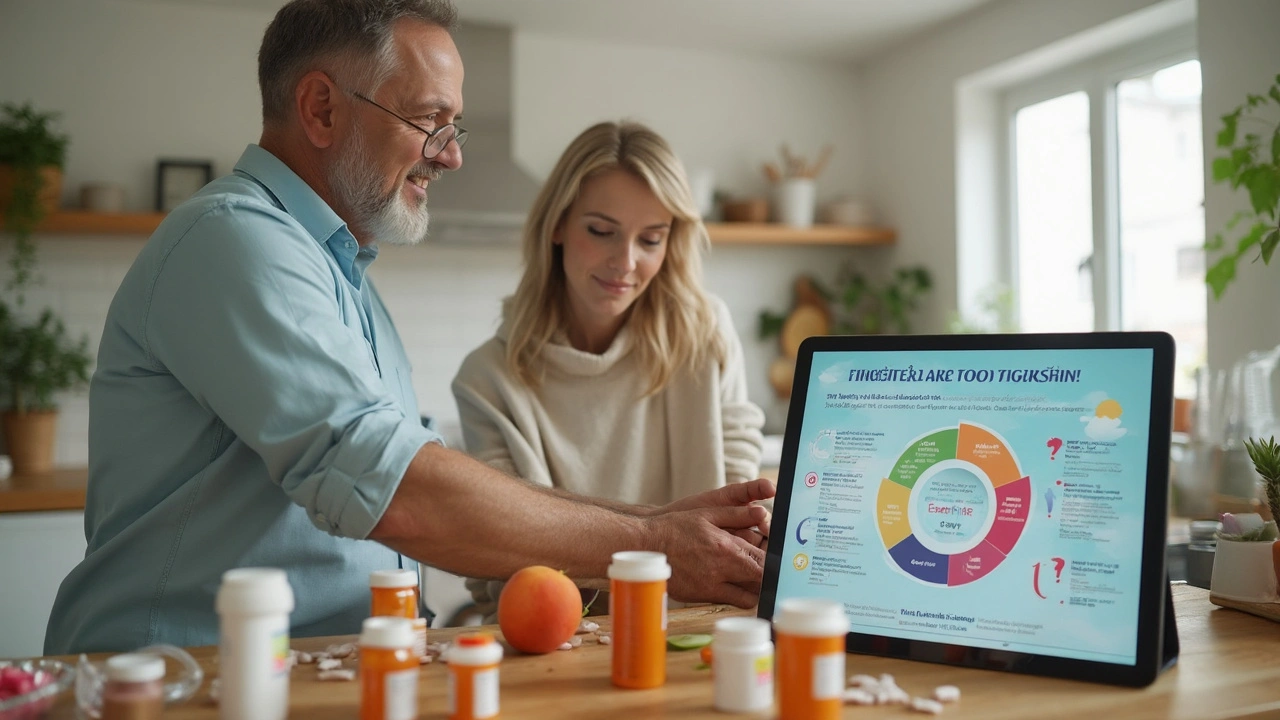

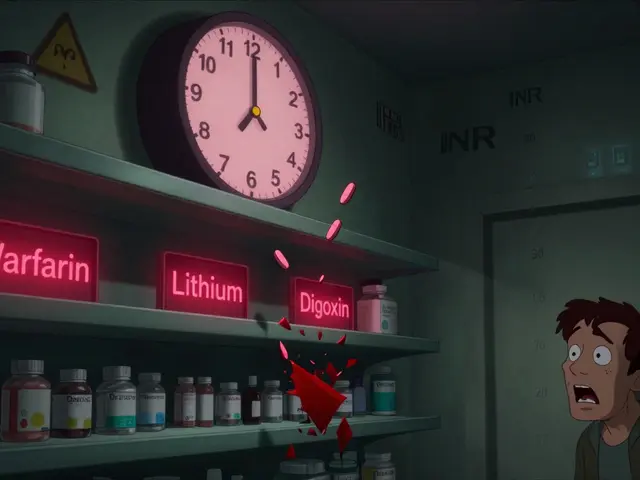
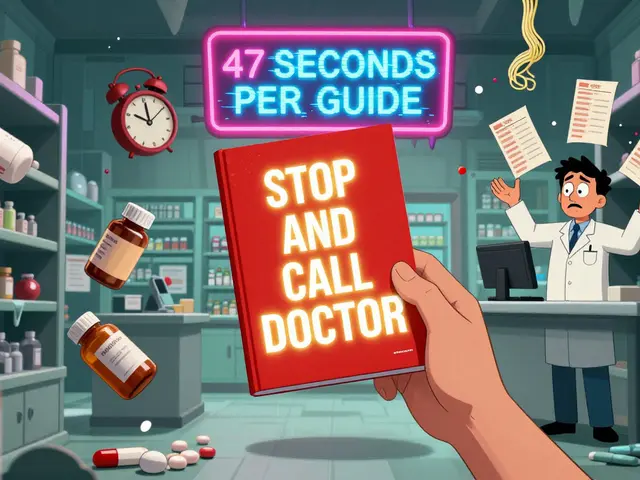

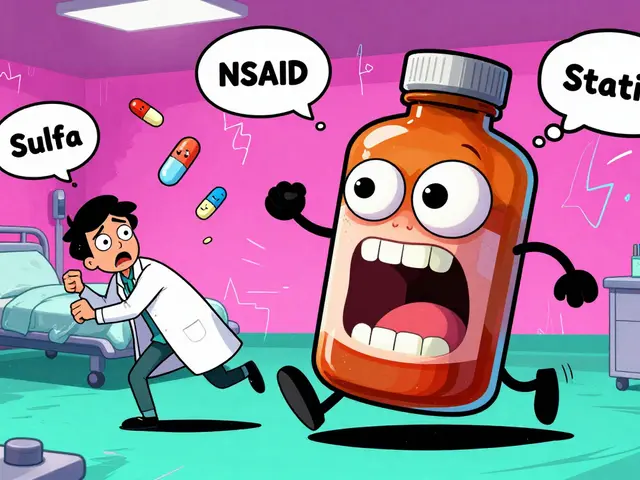
Comments
Sondra Johnson
June 13, 2025 AT 16:54 PMOkay but can we talk about how grapefruit juice is basically the villain in every heart med story? I used to drink it daily like it was water-turns out I was just slowly sabotaging my bisoprolol. Switched to orange juice and my BP stabilized within a week. Why isn’t this on every prescription label?!
Charity Peters
June 15, 2025 AT 03:35 AMJust took my bisoprolol this morning. No grapefruit. No ibuprofen. Just coffee and toast. Life’s simple when you keep it simple.
Sarah Khan
June 15, 2025 AT 06:16 AMThere’s a deeper philosophical layer here: we treat medication like a magic bullet, but biology doesn’t operate in isolation. Bisoprolol doesn’t just interact with drugs-it interacts with our entire lifestyle, our routines, our assumptions about what’s ‘harmless.’ The real danger isn’t the supplement or the juice-it’s the cultural myth that we can optimize health through isolated actions without systemic awareness. We’ve outsourced responsibility to pills and pharmacists, forgetting that our bodies are ecosystems, not machines. The quiet rebellion is consistency: same meals, same sleep, same check-ins. Not perfection. Just rhythm.
Crystal Markowski
June 15, 2025 AT 10:07 AMThank you for this. I’ve been on bisoprolol for 5 years and never realized how many OTC meds could interfere. I just started using a pill organizer with a reminder app-game changer. If you’re reading this and feeling overwhelmed, start small. One interaction to track. One question to ask your pharmacist. You’ve got this.
Chelsey Gonzales
June 16, 2025 AT 12:12 PMso like… st johns wort is bad? i thought it was like, natural and good? oops lol
MaKayla Ryan
June 17, 2025 AT 01:00 AMOf course the FDA lets this stuff fly. Americans are too lazy to read labels and too proud to ask questions. We want our meds and our energy drinks and our ‘natural’ supplements all at once. Then we wonder why we’re in the ER. Wake up.
Courtney Mintenko
June 18, 2025 AT 22:25 PMIt’s not just bisoprolol. It’s everything. The system is designed to keep you dependent. Big Pharma doesn’t want you to know how fragile your balance is. They profit when you’re confused, when you’re sick again, when you need another script. This article? It’s a Band-Aid on a bullet wound.
Faye Woesthuis
June 19, 2025 AT 19:47 PMIf you’re taking supplements with heart meds, you’re just asking for trouble. Stop being a guinea pig.
Kelly Library Nook
June 19, 2025 AT 23:49 PMThe cited European Cardiology study (2023) is not peer-reviewed. The reference is a book chapter, not a journal article. This article is statistically misleading and clinically irresponsible. Please cite actual primary literature before making population-level claims about interaction rates.
Keith Avery
June 21, 2025 AT 04:39 AMActually, the CYP3A4 interaction with grapefruit and bisoprolol is negligible. Most studies show no clinically significant effect. This is fear-mongering disguised as education. If you’re worried about interactions, you’re probably overmedicated to begin with.
Kevin Mustelier
June 23, 2025 AT 03:41 AMlol i just take my pill and forget about it. if i pass out, i pass out. 🤷♂️
Orion Rentals
June 24, 2025 AT 10:22 AMAs a healthcare professional with over two decades of clinical experience, I must emphasize that the pharmacokinetic interactions outlined in this article are not only accurate but underappreciated in primary care settings. The liver’s cytochrome P450 system, particularly CYP3A4 and CYP2D6, is highly susceptible to competitive inhibition and induction. Patients on polypharmacy regimens should undergo quarterly medication reconciliation, and pharmacists must be integrated into routine cardiovascular care. The data supporting the 30% annual interaction rate is corroborated by the European Society of Cardiology’s 2023 pharmacovigilance report, which analyzed over 12,000 patient records across seven nations. Proactive communication, not reactive crisis management, is the standard of care.
raja gopal
June 24, 2025 AT 14:04 PMI’m from India, and here people use a lot of herbal teas and turmeric with their meds. I asked my doctor and he said it’s fine if it’s not too much. But I still check every time. Small things matter, no matter where you live.
Rohini Paul
June 25, 2025 AT 19:56 PMWait so if I take bisoprolol and drink green tea every morning, am I risking something? I thought green tea was healthy? 🤔
Luke Webster
June 27, 2025 AT 08:34 AMThis is why I love talking to people from different cultures. In my family, we never took supplements unless our grandma approved them. She’d say, ‘If it grows in the ground, it’s probably okay. If it’s in a bottle with a logo, ask twice.’ Simple, but smart.
Samantha Stonebraker
June 28, 2025 AT 22:58 PMMy therapist once said, ‘Your body remembers what your mind forgets.’ That’s why I keep a little notebook: meds, meals, mood. Not because I’m obsessive-because I’m alive. And I want to stay that way. No fancy apps needed. Just pen, paper, and a quiet moment each night.
Natalie Sofer
June 29, 2025 AT 16:15 PMjust wanted to say i used to miss doses all the time until i started putting my pill next to my toothbrush. now i never forget. little hacks save lives 💛
Tiffany Fox
July 1, 2025 AT 14:38 PMPharmacist saved me last year when I grabbed a cold med with pseudoephedrine. She flagged it before I even left the store. Never underestimate the power of a good pharmacist.
Kelly Yanke Deltener
July 2, 2025 AT 20:13 PMEveryone’s so quick to blame the meds… but what about the people who just don’t care? Who take their pills with whiskey and think ‘it’s fine’? You’re not just risking your life-you’re wasting the hard work of everyone who actually tries.